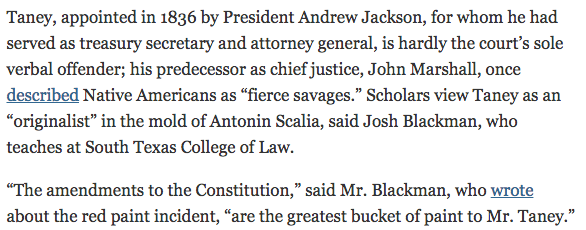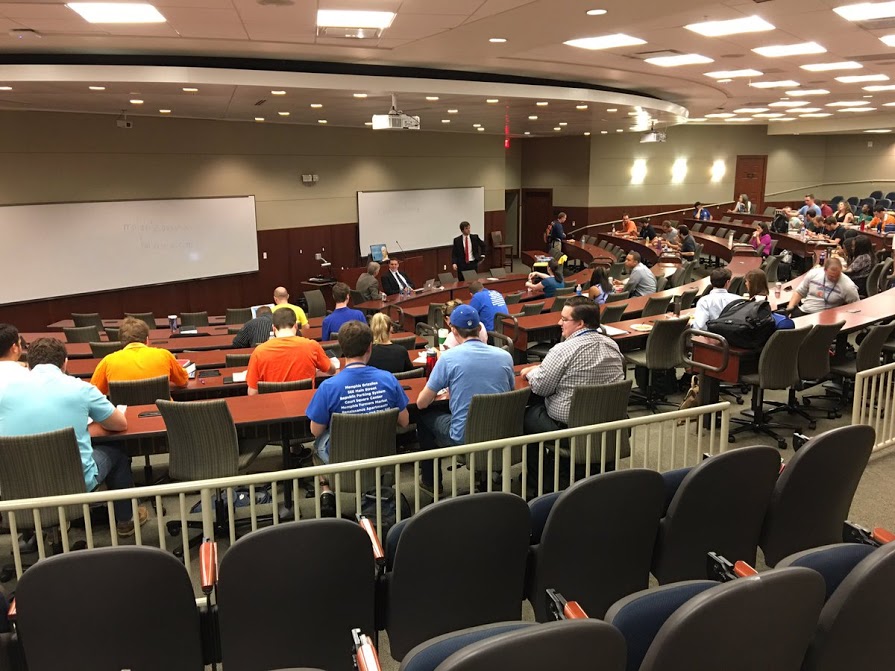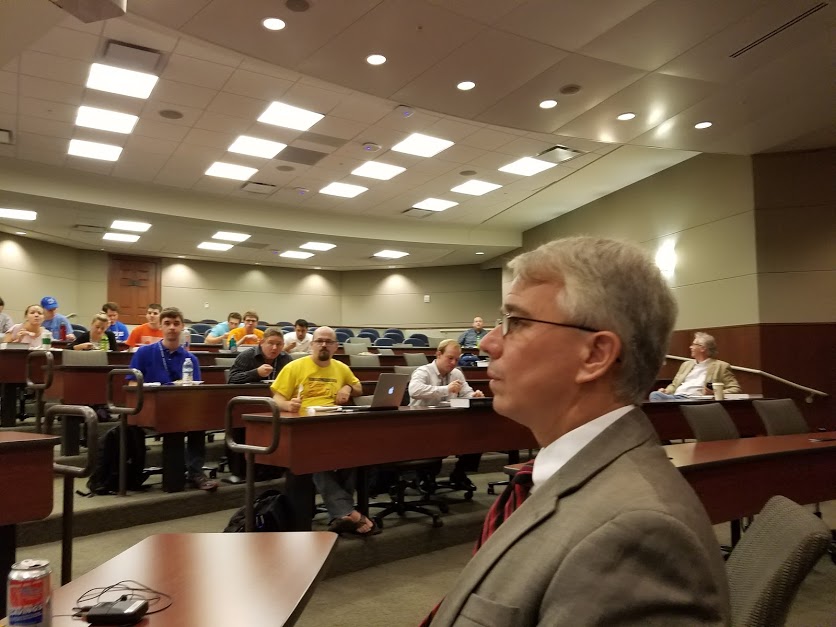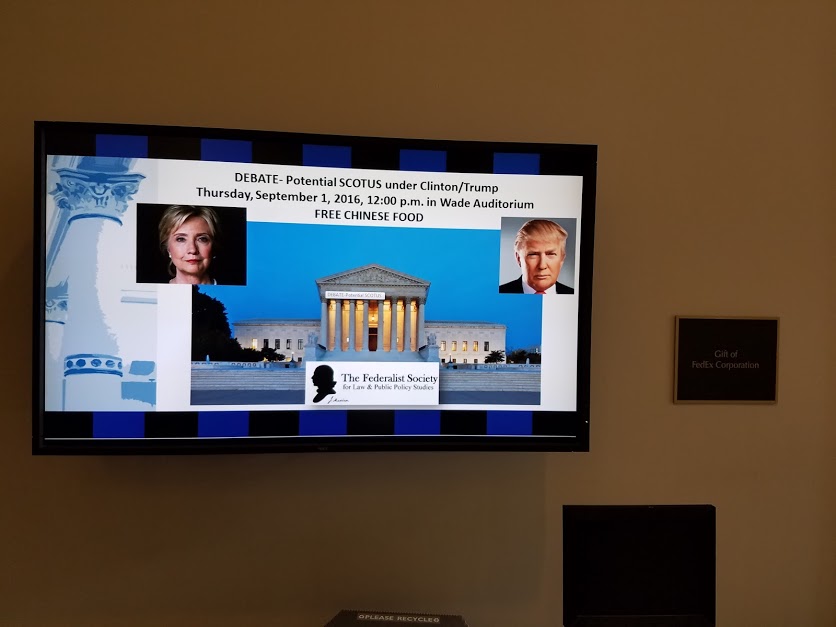During the hearing in Unites States v. Texas, the attorney representing MALDF and Jane Does explained that because the motion for reconsideration before the Supreme Court is still pending, Judge Hanen lacks jurisdiction to enforce his sanctions order that was issued in May. I don’t think that is correct. Under Supreme Court Rule 44, before the mandate is issued, the lower court proceedings are stayed. But that does not affect the court’s inherent authority to enforce an injunction that is not stayed.(Here, the 5th Circuit declined to stay the injunction, and inexplicably, the government did not seek a stay from SCOTUS). The sanctions are connected with the failure of the government to comply with the injunction.
There is precedent here from the long-running case of United States v. Microsoft. On December 11, 1997, the district court granted a preliminary injunction to prevent Windows from requiring that manufacturers include Internet Explorer 4.0 on their computers running Windows 95. (This entire suit seems so quaint by today’s standards!). On December 16, Microsoft filed its notice of appeal to the D.C. Circuit (97-5343). The following day, on December 17, the Justice Department filed with the district court a motion for judgment of civil contempt and to enforce the preliminary injunction. DOJ alleged that Microsoft’s public response flouted the court’s judgment.
Microsoft has cynically acted as if the preliminary injunction permits it to perpetuate the very conditioning the Court enjoined. Microsoft’s naked attempt to defeat the purpose of the Court’s Order and to further its litigation strategy is an affront to the Court’s authority; the Court
accordingly should hold Microsoft in civil contempt and act swiftly to bring it into compliance. FN1
FN1. This Court, of course, retains jurisdiction to enforce the unstayed preliminary injunction during the pendency of Microsoft’s present appeal. See Deering Milliken, Inc. v. FTC., 647 F.2d 1124, 1128-29 (D.C. Cir. 1978). See generally 16 Charles A. Wright et al., Federal Practice and Procedure &167; 3921.2, at 56-58 (2d ed. 1996).
This footnote is critical. When the injunction is not stayed, even though an appeal was already pending, the district court retained complete jurisdiction to enforce (through contempt if necessary) its injunction.
Deering v. Milliken is instructive. The per curiam order (joined by Judges David Bazelon, Judge Spottswood Robinson, and District Judge Aubrey E. Robinson, Jr.) is directly on point:
It is well established that the District Court is without jurisdiction to alter a judgment of its own while an appeal therefrom is ongoing.10 But it is equally clear that the vitality of that judgment is undiminished by pendancy of the appeal. Unless a stay is granted either by the court rendering the judgment or by the court to which the appeal is taken, the judgment remains operative.11 To be sure, for as long as the appellate court retains its mandate it maintains its jurisdiction over the case,12 and thus the power to alter the mandate.13 But non-issuance of the mandate by the appellate court has no impact on the trial court’s powers to enforce its unstayed judgment since the latter court has retained that power throughout the pendancy of the appeal.14
FN 11 provides:
Hovey v. McDonald, 109 U.S. 150, 161, 3 S.Ct. 136, 143, 27 L.Ed. 888, 891-892 (1883) (“an appeal from a decree granting, refusing or dissolving an injunction does not disturb its operative effects”); Gullett v. Gullett, 85 U.S.App.D.C. 12, 14, 174 F.2d 531, 533 (1949); Weston Lighting Corp. v. Smoot-Holman Co., 352 F.2d 1019, 1020-1021 (9th Cir. 1965); United States v. City of Chicago, 411 F.Supp. 218, 246 (N.D.Ill.1976), modified, 549 F.2d 415 (7th Cir. 1977). See also 9 J. Moore, Federal Practice P 208.03, at 1407-1408 (2d ed. 1948):
The only consequence of failing to obtain a stay is that the prevailing party may treat the judgment of the district court as final, notwithstanding that an appeal is pending. If the judgment awards money or property, it may be executed upon unless stayed; if it awards an injunction, the injunction is effective unless stayed; if it refuses an injunction, the prevailing party may engage in the conduct that was sought to be restrained unless an injunction pending appeal is obtained
(footnotes omitted).
The most recent issue of Wright & Miller–citing Milliken–maintains this rule:
Because an appeal does not suspend the operation of the district court’s judgment, the mere fact that a court of appeals has stayed its own mandate will not affect the operation of an unstayed district court judgment.
§ 3954 – Motion for a Stay or Injunction, 16A Fed. Prac. & Proc. Juris. § 3954 (4th ed.)
What does this mean? Even though the Supreme Court has not yet issued the mandate in U.S. v. Texas (while the motion for reconsideration is pending) the district court retains all jurisdiction to enforce its unstayed injunction. Had the USG sought a stay from SCOTUS of the preliminary injunction, the situation would be different, but that didn’t happen.
Why does this matter? If EDNY declares that Judge Hanen’s injunction does not apply in New York, and DHS official try to enforce it, Judge Hanen (on Texas’s motion) could hold them in civil contempt.
H/T to John Bursch, and his encyclopedic knowledge of appellate procedure.




